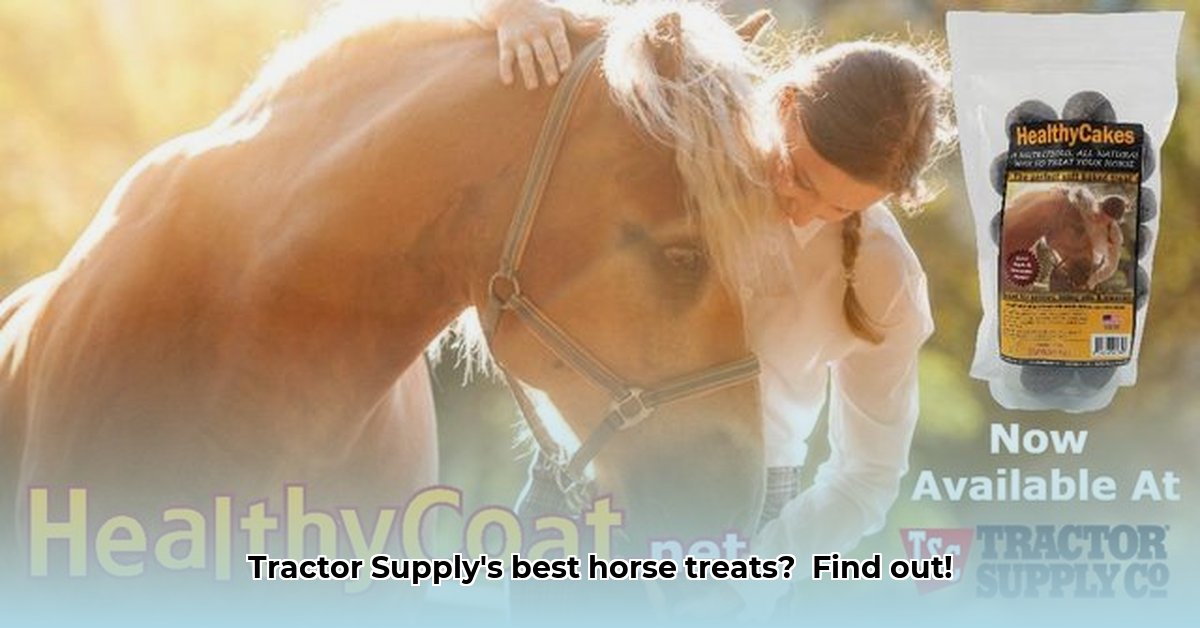
Choosing the right horse treats isn't just about a happy horse; it's about a healthy planet. This guide helps you navigate the options at Tractor Supply, focusing on sustainable choices that benefit both your equine companion and the environment. We'll explore key factors to consider, examine hypothetical examples, and discuss broader sustainable agricultural practices. For similar considerations with dog treats, check out this helpful guide: Dog Treat Guide.
What Makes a Horse Treat Truly Sustainable?
A truly sustainable horse treat prioritizes the well-being of your horse, minimizes environmental impact, and ensures ethical treatment throughout its production. This includes:
Ingredient Sourcing: Are ingredients locally grown, reducing transportation emissions? Are they organically produced, minimizing pesticide use and promoting biodiversity? Do the farms prioritize animal welfare?
Packaging: Is the packaging recyclable, compostable, or made from recycled materials? Minimal packaging reduces waste and resource consumption.
Ethical Production: Were the ingredients produced ethically, with fair labor practices? Transparency in supply chains is key.
Assessing Sustainable Treat Options at Tractor Supply (Hypothetical Examples)
(Note: The following examples are hypothetical, pending actual data from Tractor Supply. Always check product labels for the most up-to-date information.)
| Treat Name & Brand | Key Ingredients | Packaging | Sustainability Certifications | Pros | Cons | Where to Buy |
|---|---|---|---|---|---|---|
| "Happy Horse" Carrot Cubes | Organic, locally sourced carrots | Recyclable paper bag | USDA Organic | Supports local farmers, healthy snack | May not be suitable for all horses | Tractor Supply, local feed stores |
| "Green Valley" Apple Slices | Apples from sustainable orchards, minimal added sugar | Compostable bag | No specific certification | Natural ingredients, reduces food waste | Limited shelf life, may attract pests | Tractor Supply, online retailers |
| "Field Fresh" Beet Pulp Bites | Beet pulp from a vertically integrated farm | Minimal plastic bag | Traceable ingredient supply | Nutritious, supports efficient farming | More expensive than conventional treats | Tractor Supply, select feed and tack stores |
Sustainable Practices in Feed Production: A Broader Perspective
Sustainable feed production goes beyond individual treats. It involves implementing practices that minimize environmental impact across the entire supply chain. Key strategies include:
Precision Farming: Utilizing technology such as GPS and sensors to optimize resource use, reducing waste and maximizing yield.
Crop Rotation: Rotating crops prevents soil depletion and reduces the need for synthetic fertilizers.
Integrated Pest Management (IPM): Employing natural methods to control pests, minimizing reliance on harmful chemicals.
Alternative Protein Sources: Exploring sustainable alternatives such as insects or algae to reduce pressure on conventional feed production.
Making Informed Choices: A Call to Action
Choosing sustainable horse treats is a powerful way to support ethical and environmentally responsible practices. By carefully examining ingredients, packaging, and production methods, you can make a significant difference. Look for brands that are transparent about their sourcing and commitment to sustainability. Your choices contribute to a healthier planet and a happier horse. Don't hesitate to ask questions at Tractor Supply and other retailers about the sustainability of their products. Together, we can build a more sustainable future for our horses and the world.